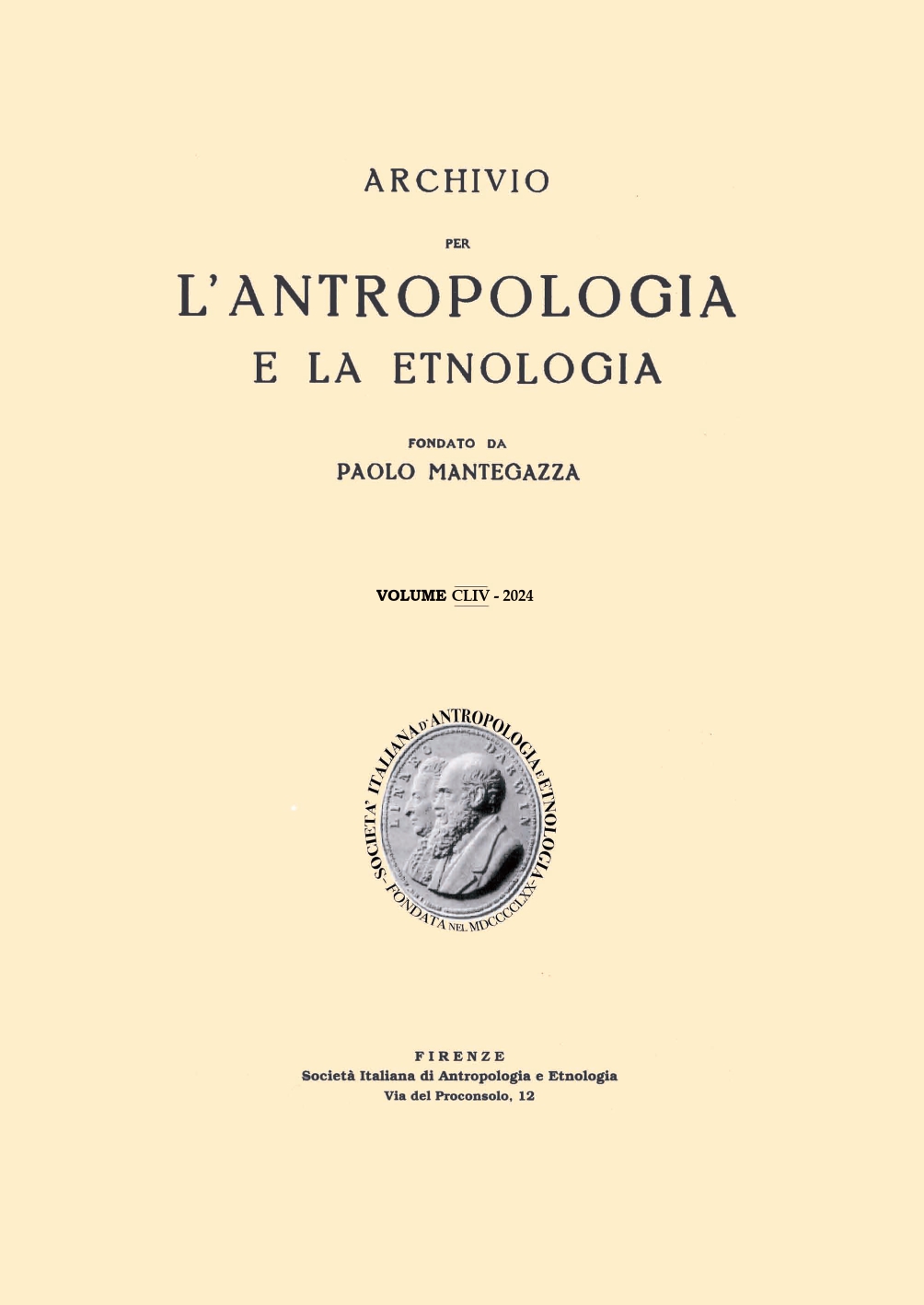
Published 2024-11-19
Keywords
- women ethnography,
- nature/culture entanglement,
- sexes construction
How to Cite
Copyright (c) 2024 Silvia Lelli

This work is licensed under a Creative Commons Attribution 4.0 International License.
Abstract
This article deals with some lesser-known key points of Margaret Mead's unconventional pathways of life and work. She raised many transcultural issues regarding female and male sexes that are still relevant and continue to animate current academic and political
debates. Mead’s numerous ethnographic research projects were developed mainly in field studies in Oceania – Samoa, Papua New Guinea, Bali – between the 1920s and the 1950s. These studies were revisited until the 1970s, within the framework of the Nature/
Culture entanglement, distinctive of the Culture and Personality School Mead belonged to. This article interfaces Mead’s early major works with biographical and autobiographical writings, providing an analysis of Mead’s transcultural cross-examination of different
forms of family and social relations, whose results show how the so-called «sexual models» are cultural constructions and not natural matters, as usually claimed in western societies. The deconstruction of the «naturalness» of sexual models was a starting point for the elaboration of the future concept of «gender», discussed in early and current Women Studies, Gender Studies and Feminist Anthropology. Mead sustained the possibility of changing the sex-based social roles and it raised conservative hostilities, but also a progressive consensus. Both in her scientific production and in her bisexually oriented life experience, as expressed in many letters she sent to her lover and professor Ruth Benedict, Mead’s aims were to disseminate new knowledge on human complexity. Mead wanted to make this knowledge understandable to everyone in order to eradicate stereotyped visions and attitudes, including the sexual binary barriers that in her view precluded a free development of individual potential.
